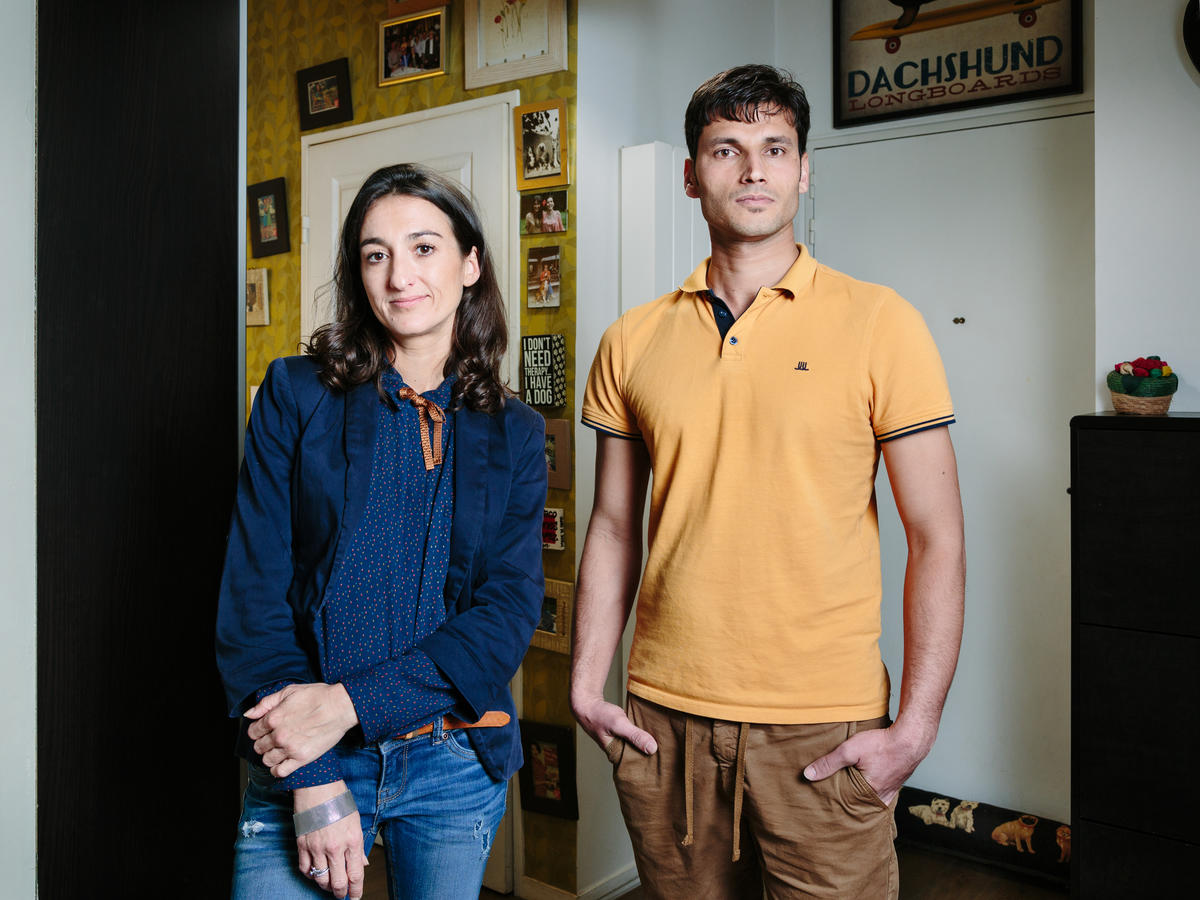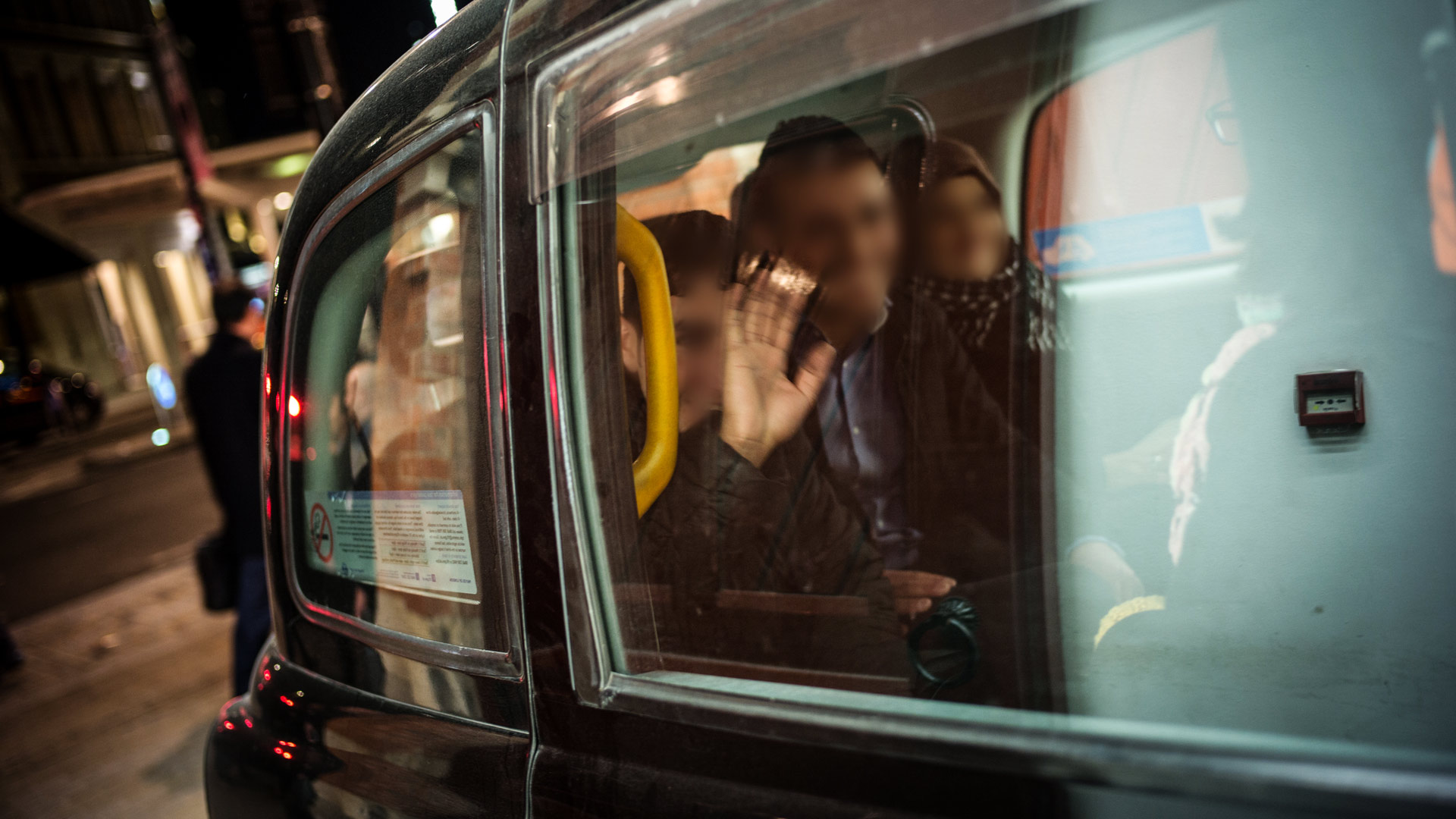The Jungle is empty, but UNHCR still helps migrants in northern France
The Jungle is empty, but UNHCR still helps migrants in northern France

LOON-PLAGE, France, November 17 (UNHCR) - In late September, French police used bulldozers to flatten a notorious makeshift camp for migrants and asylum-seekers on the outskirts of Calais, saying it had become a base for the illegal activities of people smugglers.
While "The Jungle" is now just a memory, the smugglers are still in the area, looking to make money from the scores of people, mostly from Afghanistan, who remain in northern France waiting for a chance to cross to the United Kingdom (UK), visible on a clear day across the English Channel.
The UN refugee agency has had a presence in Calais since June. UNHCR staff, accompanied by an interpreter, visit towns and communes up and down the coast, meeting undocumented migrants and telling them about the asylum system in France and how to apply for refugee status, as well as assisting with applications. It's often a struggle getting people to open up, especially if smugglers are nearby.
Many of the former residents of The Jungle have been returning to the Pas-de-Calais, including people of concern to the UN refugee agency. They sleep rough, despite the chilly weather, keeping one step ahead of the police raids aimed at stopping them from building another grim settlement.
"After they closed The Jungle, I had to sleep under a bridge for a while," whispered a thin and fragile 14-year-old boy from Jalalabad in eastern Afghanistan. "Now I am living in the house of somebody who works for an organization that defends the rights of migrants."
Loon-Plage is typical of the places that staff from UNHCR and its local partner, France Terre d'Asile, regularly visit in search of people to advise and help. Some 50 males, Afghans and Kurds, have built a rough encampment not far from the town, which is located between Calais and Dunkirk.
* During a recent visit, a dozen men were found huddling around a camp fire among the sand dunes and the tall grass. It was bitterly cold, even though it was midday. As the team approached, more men and boys came from behind the dunes to see who was visiting.
Suddenly, a plastic bottle filled with sand was hurled at the visitors. Somebody hiding in the bushes shouted insults in Kurdish and English. Clearly, he wanted the team to go away.
The others were uncomfortable. "We don't want you to think that we are all like that", said an Afghan man. "We want to listen to you, but here we are not free to talk. This is their place," he said, referring to the smugglers.
Despite the tense atmosphere, the staff from UNHCR and France Terre d'Asile stayed for about 90 minutes, talking to the group. The team explained to the squatters that they had the right to be informed and to make up their own mind without pressure. Some said they would like to go to the UNHCR office in Calais and learn more about the option of claiming asylum in France.
Suddenly, a tall man in a black leather jacket appeared, his eyes flashing with anger. He whispered something to one of the boys in the group and the cowed youngster left immediately. One by one, the rest all left quietly and disappeared behind the dunes, clearly intimidated by the stranger.
After he had rounded up the rest and left himself, only four adult men remained, standing by the ashes of the camp fire. Two of them asked to come to Calais. The other two took information leaflets in Pashto.
"It takes time to gain the trust of the migrants; provide information on asylum and counsel them on the process. All are fixated on reaching the UK and have often been misinformed by other migrants or the smugglers about their options," said Maureen McBrien, who works for UNHCR in Calais.
The smugglers have a powerful hold over the migrants, some of whom have borrowed money to pay for the long dangerous journey that brought them to Europe. The smugglers' main goal is to ensure that their paying customers transit to the UK.
They control access to the areas where the lorries bound for England park, and they charge each migrant several thousand euros for the chance of hiding under a lorry or stowing away in a cargo container. Each migrant represents money and they are reluctant to lose this source of income. Unaccompanied minors, some as young as 11, are particularly vulnerable.
Meanwhile, UNHCR is working with the local authorities and civil society to ensure protection for those who wish to remain in France. "The migrants need accurate and unbiased information about the options for regularizing their stay in France," McBrien explained. "This continues to be the main priority for us."
By William Spindler in Loon-Plage, France
* Police reported that they raided this encampment on Tuesday morning, detaining 30 adults and 11 minors.







